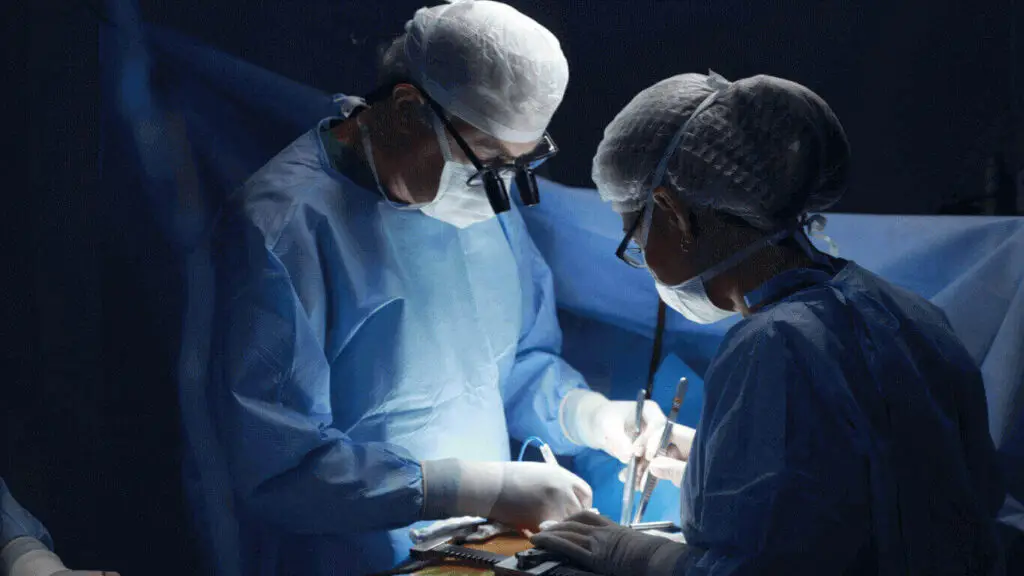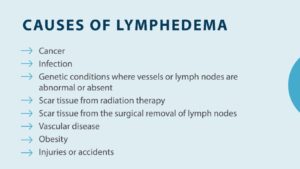Lymphedema Surgery: What to Look for in a Qualified Surgeon
Lymphedema is a chronic and often debilitating condition that requires specialized care, particularly when surgery becomes a viable treatment option. However, not all surgeons have the necessary skills and experience to perform lymphedema surgery successfully. In this article, we’ll discuss what to look for when selecting a qualified lymphedema surgeon and why making the right choice is critical for achieving the best results.
The Importance of Specialized Lymphedema Surgery
Why Lymphedema Surgery Is Unique
Lymphedema surgery requires a unique set of skills that go beyond traditional surgical training. Procedures such as lymphovenous bypass (LVB) and vascularized lymph node transfer (VLNT) are highly specialized and involve delicate supermicrosurgical techniques. These surgeries aim to restore or improve lymphatic drainage, a process that can be complex due to the tiny size of the lymphatic vessels and their intricate network.
Risks of Choosing an Inexperienced Surgeon
Supermicrosurgery does not equate to smaller microsurgery. The skills required for hand stitching delicate sub 0.8mm vessels are typically not trained for microsurgeons handling 1, 2 or 3 mm vessels. Choosing an inexperienced surgeon can increase the risks associated with lymphedema surgery. Surgeons without dedicated training in super microsurgery may not fully understand the complexities of the lymphatic system, which can lead to incomplete or ineffective treatments. In some cases, it may even result in worsening symptoms. Therefore, selecting a surgeon with advanced training in lymphedema treatment who regularly performs these surgeries is vital for patient safety and optimal outcomes.
What to Look for in a Lymphedema Surgeon
Dedicated Fellowship Training in Lymphedema Surgery
One of the key qualifications to look for in a lymphedema surgeon is dedicated fellowship training. This specialized training focuses exclusively on the diagnosis and treatment of lymphedema, including advanced surgical techniques like lymphovenous bypass, lymphatic interposition flap transfer (LIFT), Dermal adipose Lymphatic flap (DALF) and lymph node transfer. A fellowship ensures that the surgeon has the breadth of knowledge and the hands-on experience required to perform the full range of complex surgeries with precision. The duration is also important, as anything less than six months of lymphedema exposure does not give adequate exposure to the range of cases one may have to handle. Dr. Jeremy Sun, for example, trained at the Supermicrosurgery International Lymphedema Center in Tokyo under Dr. Takumi Yamamoto, a world-renowned expert in the field for over six months. This experience allows him to offer his patients the most advanced and effective surgical solutions.
Experience with Supermicrosurgical Techniques
Supermicrosurgery is the cornerstone of effective lymphedema surgery. It involves working with extremely small blood and lymphatic vessels, sometimes as thin as 0.8 millimetres. Surgeons must have exceptional skill and control to perform these procedures successfully. When evaluating a surgeon, ask about their experience with super microsurgery and how many lymphedema surgeries they have completed. The more experience they have, the better their ability to handle complex cases and ensure successful outcomes.
A Track Record of Successful Outcomes
A qualified lymphedema surgeon should have a proven track record of successful outcomes. Before committing to surgery, inquire about the surgeon’s success rates and ask for patient testimonials or case studies. Surgeons with a high success rate will often have patients who experience significant reductions in swelling, improved mobility, and better overall quality of life following surgery.
Why Subspecialty Training Matters
Going Beyond General Microsurgery Training
Many surgeons who perform lymphedema surgery have only completed general microsurgery training, which offers limited exposure to the complexities of the lymphatic system. These surgeons may only encounter lymphedema cases intermittently, which limits their understanding of the full spectrum of the condition. In contrast, a subspecialty-trained surgeon like Dr. Sun has focused their entire fellowship and career on lymphedema surgery, gaining deep insights into the condition and the most effective treatment approaches.
Advanced Techniques in Lymphedema Surgery
Subspecialty training enables surgeons to learn advanced techniques that go beyond basic microsurgery. Procedures such as lymphovenous bypass, DALF, LIFT, lymph node transfer, Lymph node venous anastomosis, and even liposuction for lymphedema require special training, which are typically taught during specialized training programs. Some of these procedures were unknown in Singapore until Dr Sun returned from training. Surgeons like Dr. Sun, who have undergone this training, are equipped to handle even the most challenging cases of lymphedema and can offer patients the best possible outcomes.
Why Early Screening and Surgery Lead to Better Outcomes
The Benefits of Early Detection
Early detection of lymphedema is critical for successful management. Patients who are diagnosed in the early stages of the condition have a much higher chance of benefiting from conservative therapies and, if necessary, early surgical interventions. Procedures like lymphovenous bypass are most effective before significant lymphatic damage occurs, which is why early screening is important.
Early Surgical Intervention for Better Long-Term Results
Patients who undergo surgery early during their lymphedema often experience better long-term results. Early intervention allows surgeons to restore lymphatic function before the condition progresses to more advanced stages, which can involve extensive fibrosis and scarring. By addressing the problem early, surgeons can reduce the need for lifelong compression garments and help patients achieve a higher quality of life.
How to Ensure Success After Lymphedema Surgery
Post-Operative Care for Long-Term Success
Successful outcomes from lymphedema surgery depend on the surgeon’s skill and the patient’s adherence to post-operative care. After surgery, patients are typically advised to wear compression garments, engage in light physical activity, and follow a prescribed skincare routine. A skilled surgeon will provide detailed instructions for post-operative care to ensure that the surgical results are maintained long-term.
Combining Surgery with Conservative Therapies
Lymphedema surgery should not be viewed as a standalone treatment. In most cases, it is part of a comprehensive management plan that includes manual lymphatic drainage (MLD), compression therapy, and physical therapy. The best surgeons work closely with a multidisciplinary team to ensure patients receive a well-rounded treatment plan tailored to their needs.
Why Dr. Jeremy Sun Is the Right Choice for Lymphedema Surgery
Advanced Training at a World-Class Center
Dr. Jeremy Sun’s dedicated advanced clinical training in lymphedema at the Supermicrosurgery International Lymphedema Center in Tokyo under Dr. Takumi Yamamoto gives him unique expertise in treating lymphedema. His deep understanding of the lymphatic system and mastery of super microsurgical techniques enable him to provide his patients with the most effective treatment options.
A Personalized Approach to Patient Care
Dr. Sun takes a personalized approach to patient care, ensuring each treatment plan is tailored to the individual’s specific condition and needs. He listens to his patients, explains their treatment options in detail, and crafts customized care plans that maximize the chances of successful outcomes. This patient-centred approach and technical expertise make Dr Sun a top choice for lymphedema surgery.
Conclusion
Choosing the right lymphedema surgeon can significantly affect your treatment outcome. Look for a surgeon who has completed dedicated subspecialty training in lymphedema surgery, has extensive experience with super microsurgical techniques, and has a proven track record of success. Surgeons like Dr. Jeremy Sun, who have trained at world-class institutions and deeply understand the lymphatic system, are equipped to provide the highest level of care. By selecting a qualified surgeon, you can ensure the best possible results from your lymphedema surgery.





